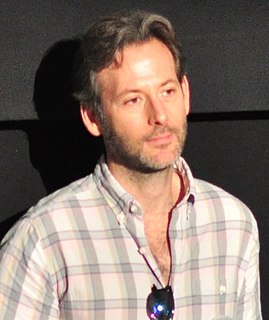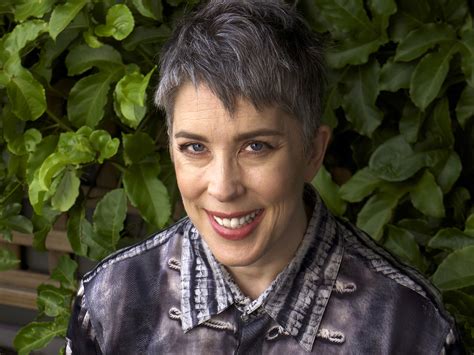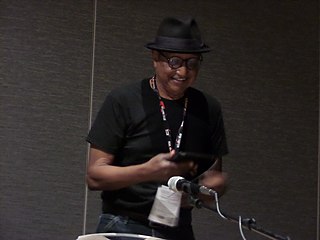A Quote by Tom Wolfe
It helps to know from a very early age what you want to do. From the time I was five years old, I wanted to be a writer, even though I couldn't even read. It was mainly because I thought of my father as a writer.
Related Quotes
I never felt like a Chinese citizen because I was pushed away at a very young age. My father, a writer, was a national enemy of the Communist Party. He was forbidden to write for 20 years. We literally lived underground. We dug a hole and lived there for years. My father cleaned public toilets, even though he was a highly respected poet. Nationality and borders are barriers to our intelligence, to our imagination and to all kinds of possibilities.
It's not possible to advise a young writer because every young writer is so different. You might say, "Read," but a writer can read too much and be paralyzed. Or, "Don't read, don't think, just write," and the result could be a mountain of drivel. If you're going to be a writer you'll probably take a lot of wrong turns and then one day just end up writing something you have to write, then getting it better and better just because you want it to be better, and even when you get old and think, "There must be something else people do," you won't be able to quit.
Marrying the right girl is even more imperative today than it was when I was 23 years old because it's so much harder to get on as an imaginative writer like me now. You need to have somebody who believes in what you're doing and who never is skeptical about what you're doing. My wife thought it was a great thing for me to be a writer because in practical terms it freed her to do what she wanted to do, which was work.
I can write any kind of novel I want, any time, and sell it, but there's not that many people watching it. Even a low-rated TV show is a couple million more people than read my books. You want to be read, in essence. If you're a television writer, you're a writer and you want people to read your stuff. You're still reaching a bigger audience, that way. That's a philosophical way to look at it.
It's great to win a few prizes early on. It helps a writer to get noticed and to get some sales. It can also be a pain in the arse because it gets in the way of the quiet, contemplative time every writer needs, but which is particularly important when you are a new writer finding your own voice, and pursuing the things that interest you.
It feels as though a very disproportionate number of main characters are writers, because that's what the writer knows. Fair enough. But nothing bothers me more in a movie than an actor playing a writer, and you just know he's not a writer. Writers recognize other writers. Ethan Hawke is too hot to be a writer.
I'm one of those sad cases who've never wanted to be anything but a writer. I started writing my first novel when I was five years old. I have no idea what it was about, but I do remember spending considerable time trying to get the title right, though this had more to do with crayon colour than scansion.
As a younger person, I was obsessed with Ray Bradbury, and I think his stories did more to shape me as a storyteller than anybody else - even though, when I read them now, a lot of them seem overly sentimental. But that's probably the writer that I've thought about the most, even though I don't necessarily like a lot of his work.
My father never wanted me to be a writer. He didn't - he came to terms with it maybe two years before he died. He wanted me to be a weather girl because when I was growing up, there were very few Latinas on television, and in the early '70s when you first started seeing Latinas on TV, they would be the weather girls.
It's funny what [producer Richard Zanuck said about even though you can't quite place when the book or the story came into your life, and I do vaguely remember roughly five years old reading versions of Alice in Wonderland, but the thing is the characters. You always know the characters. Everyone knows the characters and they're very well-defined characters, which I always thought was fascinating. Most people who haven't read the book definitely know the characters and reference them.
































